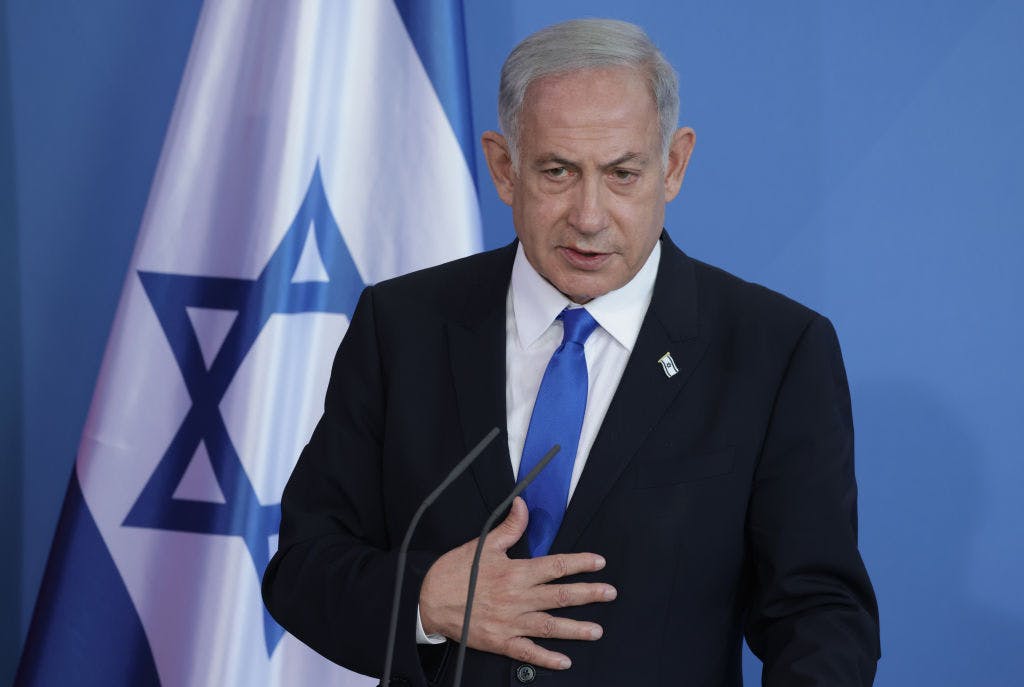As War Gathers Over Gaza, Hostage Crisis in Hamas-Ruled Territory Becomes Gut-Wrenching Quandary for Israel
‘This whole issue of captured Israelis will not stop Israel from bombing Gaza until Hamas is destroyed,’ vows a former national security adviser to the Israeli prime minister.

As war gathers over the Gaza strip, the capture of dozens of Israeli soldiers and civilians — elderly women, children, entire families — by Hamas terrorists has stirred Israeli emotions more viscerally than any crisis in the country’s recent memory and presented an impossible dilemma for Prime Minister Netanyahu.
The febrile mood in the region intensified Monday as Israel’s Defense Minister, Yoav Gallant, announced a “complete siege” on Gaza. “We are fighting human animals, and we act accordingly,” Mr. Gallant said. As the IDF sharpened the tone with respect to Gaza, the visceral impact of the hostage situation continued to be felt.
Hamas’s 2006 seizure of a sole young conscript, Gilad Shalit, consumed Israeli society for years — a national obsession that prompted Israel to bombard the Gaza Strip and ultimately release more than a thousand Palestinian Arab prisoners, many of whom had been convicted of deadly attacks on Israelis, in exchange for Mr. Shalit’s freedom.
This time, Gaza’s Hamas rulers have abducted dozens of Israeli civilians and soldiers as part of a multipronged, shock attack on Saturday. Israel’s Government Press Office puts the number of hostages in Gaza at more than 100.
Hamas and Islamic Jihad claimed Sunday night that they were holding some 130 Israeli hostages including, they said, high-ranking army officers. Palestinian Islamic Jihad, a militant group smaller and more brazen than Hamas, said Sunday that it alone had seized 30 hostages.
Their captivity raises the heat on Mr. Netanyahu and his hawkish allies, who are already under intense pressure to respond to the killing so far of more than 700 Israelis in the Hamas attack. Mr. Netanyahu’s vow to unleash the full force of the Israeli military on Hamas has raised fears for the safety of Israeli civilians spread in undisclosed locations across the densely populated Gaza Strip.
“It will limit the directions and areas that the IDF can be active,” a former head of the Palestinian department in Israeli military intelligence, Michael Milstein, said of the hostage situation. “It will make things much more complicated.”
Locating Israeli hostages in Gaza — something Israeli intelligence agencies failed to do in the case of Mr. Shalit — poses further challenges. Although Gaza is tiny, subject to constant aerial surveillance, and surrounded by Israeli ground and naval forces, the territory just over an hour from Tel Aviv remains somewhat opaque to Israeli intelligence agencies, experts say.
“We don’t know where Israelis are sheltered,” a former national security adviser to Mr. Netanyahu, Yaakov Amidror, said. “But this whole issue of captured Israelis will not stop Israel from bombing Gaza until Hamas is destroyed.”
Hamas already has said it seeks the release of all Palestinian prisoners in Israeli jails — said to number some 4,500 detainees — in exchange for the Israeli captives.
“The release of any prisoners would be a huge deal for Hamas,” the director of the Palestinian Center for Policy and Survey Research, Khalil Shikaki, said. “It would cement Hamas’s position in the Palestinian street and further diminish the strength and legitimacy” of the Palestinian Authority.
Mr. Netanyahu’s government has fiercely opposed any gestures it views as capitulating to the Palestinians. There is “absolutely no chance” that the current government would agree to the release of Palestinian prisoners, a political scientist at the Hebrew University of Jerusalem, Gayil Talshir, said.
Israel’s powerful finance minister, settler leader Bezalel Smotrich, demanded at the Cabinet meeting late Saturday that the Israeli army “hit Hamas brutally and not take the matter of the captives into significant consideration.”
“In war you have to be brutal,” Mr. Smotrich was quoted as saying. “We need to deal a blow that hasn’t been seen in 50 years and take down Gaza.”
The risk of Israeli civilians falling victim to relentless Israeli bombardment or languishing for years in Hamas captivity while Israel gets dragged into an open-ended campaign could also be politically ruinous for Mr. Netanyahu.
“This is a serious dilemma,” a veteran Israeli political commentator, Ehud Yaari, said. “The fear is that if and when a ground operation kicks off, Hamas will threaten to execute hostages every hour, every two hours, and that will become a really heated debate.”
Israel’s tumultuous history has disclosed the extreme sensitivity of public opinion when it comes to hostages — and therefore what a potent weapon abduction can be in a country where 18-year-olds are conscripted for military service, and the army prides itself on never abandoning its own.
Families of Israelis missing after Saturday’s Hamas attack held a news conference Sunday evening that was televised live during prime time. Shaken relatives, some of them holding back tears or weeping, called on the government to bring home the captives.
In the past, Israeli society’s inability to tolerate its citizens being held captive has ignited massive public pressure campaigns, inducing governments to agree to disproportionate exchanges. This included the deal in 2011, and Israel’s release of 1,150 jailed Palestinians in exchange for three Israeli prisoners in 1985.
While military analysts remained divided on how Mr. Netanyahu might find a way out of his dilemma, the answer was painfully obvious to Israelis whose loved ones were taken hostage.
“I want them to do everything possible, to put their politics and the whole situation aside,” Adva Adar, whose 85-year-old mother, Yaffa, was captured on video being hustled across the border into Gaza on a golf cart crammed with gunmen, said. Her voice cracked as she started to cry.
“She doesn’t have a lot of time left without her medicine and she is suffering very much,” Ms. Adar said.
________
This dispatch has been expanded from the bulldog edition.
